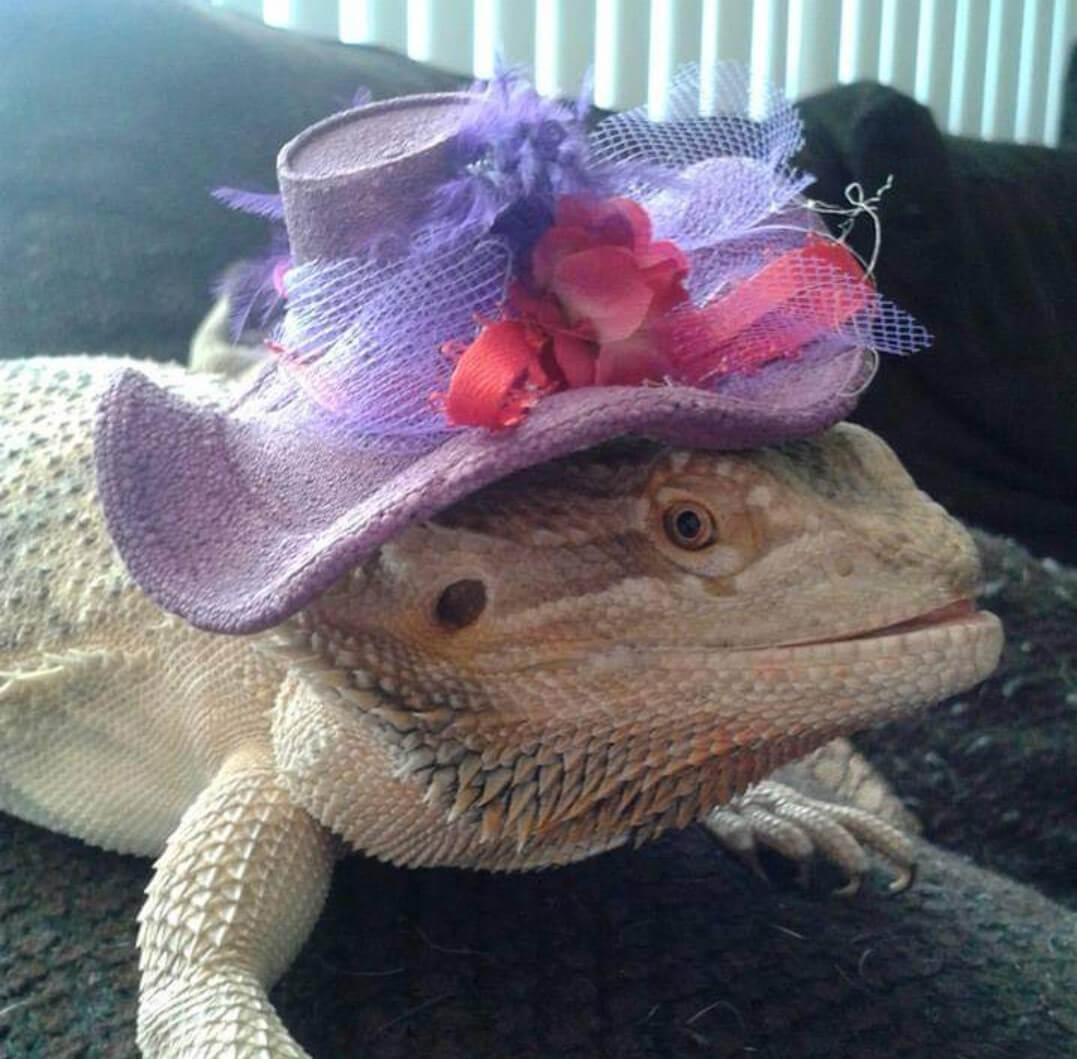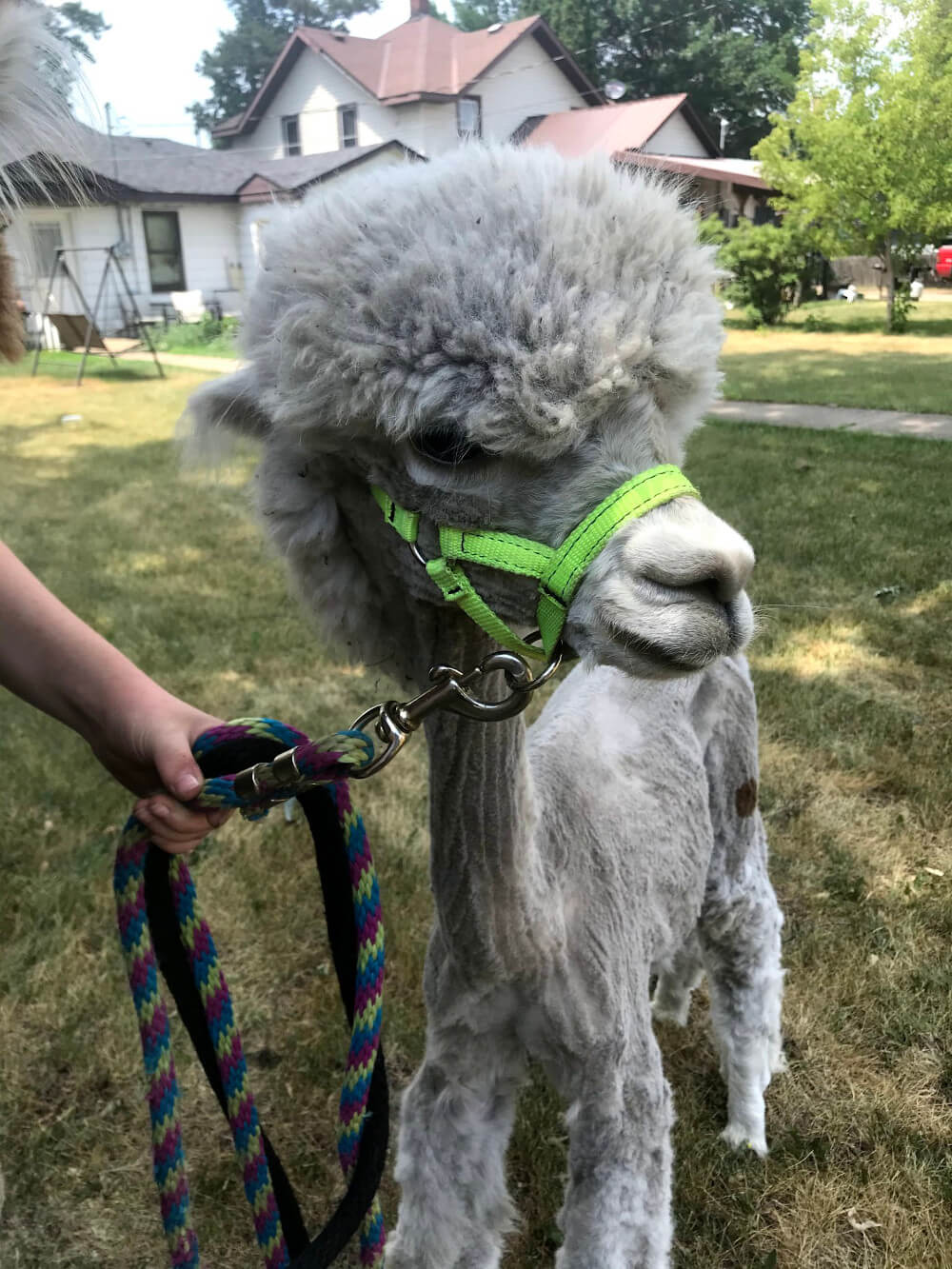Exotic Veterinary Care
 Pets come in so many shapes, sizes, breeds, and species. At Pierz Vet Clinic, we know that exotic pets, such as ferrets, rabbits, guinea pigs, rats and other small mammals make excellent companions and so we happily welcome them to our hospital. While these creatures make great companions, we understand that they also require their own special kind of veterinary care in order to remain happy and healthy. Dr. Van Stone and Dr. LaBorde, and staff strive to give them the highest standard of exotic veterinary care, all in a welcoming, family-style environment.
Pets come in so many shapes, sizes, breeds, and species. At Pierz Vet Clinic, we know that exotic pets, such as ferrets, rabbits, guinea pigs, rats and other small mammals make excellent companions and so we happily welcome them to our hospital. While these creatures make great companions, we understand that they also require their own special kind of veterinary care in order to remain happy and healthy. Dr. Van Stone and Dr. LaBorde, and staff strive to give them the highest standard of exotic veterinary care, all in a welcoming, family-style environment.
Exotic Pets Welcome
From rabbits to rodents, Pierz Veterinary Clinic happily welcomes a wide variety of non-traditional pets, providing a variety of care and services that is unique to each species.
Our staff are comfortable handling almost any species of exotic animals, these are some examples of the species we work with
|
|
Our Promise
 We promise to provide excellent care to your exotic animals, as we understand that these animals can be very challenging to care for. The Doctors and staff at Pierz Veterinary Clinic are always ready to take on challenging exotic cases and will strive to do our best at providing quality services for any species.
We promise to provide excellent care to your exotic animals, as we understand that these animals can be very challenging to care for. The Doctors and staff at Pierz Veterinary Clinic are always ready to take on challenging exotic cases and will strive to do our best at providing quality services for any species.
Exotic pets have many special needs and are notorious for hiding early disease symptoms. We recommend routine wellness exams and health consultations to detect issues early and to prevent other potentially serious health problems .
Exotic Services at The Pierz Vet Clinic
Routine Care
- Wellness examinations
- Diagnostic examinations
- Husbandry care and diet consulting
- Behavioral care consulting
- Grooming (e.g., nail trims)
Advanced Care
- Radiology (X-rays, Ultrasound and in-house CT scans)
- Blood work and fecal analysis
- Dentistry (rabbits, guinea pigs, and other small mammals)
- Elective surgery spay and castration
- Soft tissue surgery
Surgical & Other Service
Surgical Spay and neuter and other soft tissue surgeries, and dentistry (rabbits, guinea pigs and other small mammals).
Tips for Bringing your Exotic Animals to the Vet Clinic:
When you bring your exotic pets anywhere, it can be a stressful event and we will do our best to help decrease the stress during their time at Pierz Veterinary Clinic. Below are some things you can do to decrease the stress when making a visit to the vet clinic!
General Considerations
Most exotic animals are prey animals, sometimes the vet clinic is a loud, noisy environment and this can add a great deal of stress to many prey species such as our pocket pets, and birds. So call when you arrive and if there are no open rooms, we can allow you to wait in your vehicle with your pet until a room is available.
Rabbits and Most Pocket pets:
Always bring food! If you have a rabbit, chinchilla, guinea pig, or other herbivore hindgut fermenter, bringing food with them is always a good idea. When rabbits and other hindgut fermenters are hungry, they should have some food available such as hay or an occasional treat to help avoid GI stasis. GI stasis is a very dangerous condition that can occur when rabbits and other hindgut fermenters stop eating. They can end up with their GI tract slowing down and this may very quickly lead to death if not managed quickly. So to avoid this, we want our pocket pets to have access to food at almost all times, including the day of surgery. We will not feed them 30 minutes prior to surgery and will often start offering them food as soon as they are awake enough to eat again.
Reptiles, Amphibians, and Chelonians
Reptiles are a cold-blooded species and they naturally manage their body heat with exposure to the environment. They choose to go to warm or cold areas of their enclosure to help maintain proper body temperature. Many of these species we keep as pets are from jungle or desert biomes and thus tend to have high-temperature environments. We want to maintain them as close to their natural temperatures as we can, however, we live in a state that is cold for 7 months of the year. Careful consideration on how to keep your pet at the proper temperature should be taken, not just in the car. We highly recommend getting some form of indirect heat for the car ride and for the time in the waiting room to help maintain their appropriate body temperature. What we use for short excursions, is a sock with rice in it, placed in the microwave for 1-2 minutes to reach just over 100°F. If you can't hold it to your skin, it's too hot for your pet!
